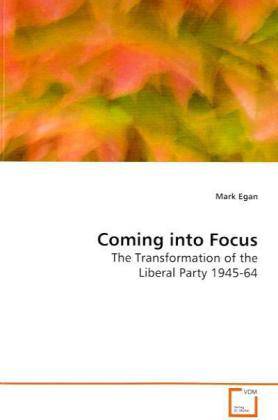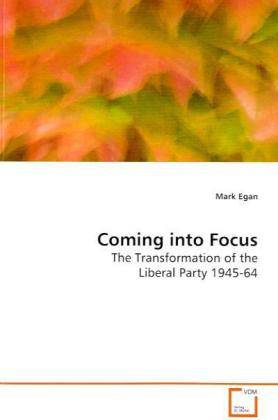
- Afhalen na 1 uur in een winkel met voorraad
- Gratis thuislevering in België vanaf € 30
- Ruim aanbod met 7 miljoen producten
- Afhalen na 1 uur in een winkel met voorraad
- Gratis thuislevering in België vanaf € 30
- Ruim aanbod met 7 miljoen producten
Zoeken
€ 77,95
+ 155 punten
Omschrijving
The survival of the Liberal Party after 1945 is one of the most surprising phenomena in modern British political history. By the late 1940s, the Party's lingering death throes seemed to be reaching their conclusion. With only a handful of parliamentary seats and no message to offer the electorate, the flame carried by Gladstone and Lloyd George was nearly extinguished. But the Liberal Party clung on and then revived in the 1960s. This book provides new perspectives on the survival and revival of the Liberal Party after 1945. It shows how the independence of Liberal associations, the recruitment of Liberal activists in the late 1940s, and the Party's strength in local government in northern England were important reasons for the Party's survival. A new wave of recruitment after 1955, inspired by Jo Grimond's leadership, facilitated the Liberal revival, but a key factor was the development of early forms of community politics in a number of towns and cities in England and Scotland. This led to an explosion in the number of Liberal councillors, particularly in suburban areas. Not only was the Party saved, but the foundations for the modern Liberal Party and its successor were laid.
Specificaties
Betrokkenen
- Auteur(s):
- Uitgeverij:
Inhoud
- Aantal bladzijden:
- 276
- Taal:
- Engels
Eigenschappen
- Productcode (EAN):
- 9783639118445
- Verschijningsdatum:
- 27/02/2009
- Uitvoering:
- Paperback
- Formaat:
- Trade paperback (VS)
- Afmetingen:
- 152 mm x 229 mm
- Gewicht:
- 408 g

Alleen bij Standaard Boekhandel
+ 155 punten op je klantenkaart van Standaard Boekhandel
Beoordelingen
We publiceren alleen reviews die voldoen aan de voorwaarden voor reviews. Bekijk onze voorwaarden voor reviews.











